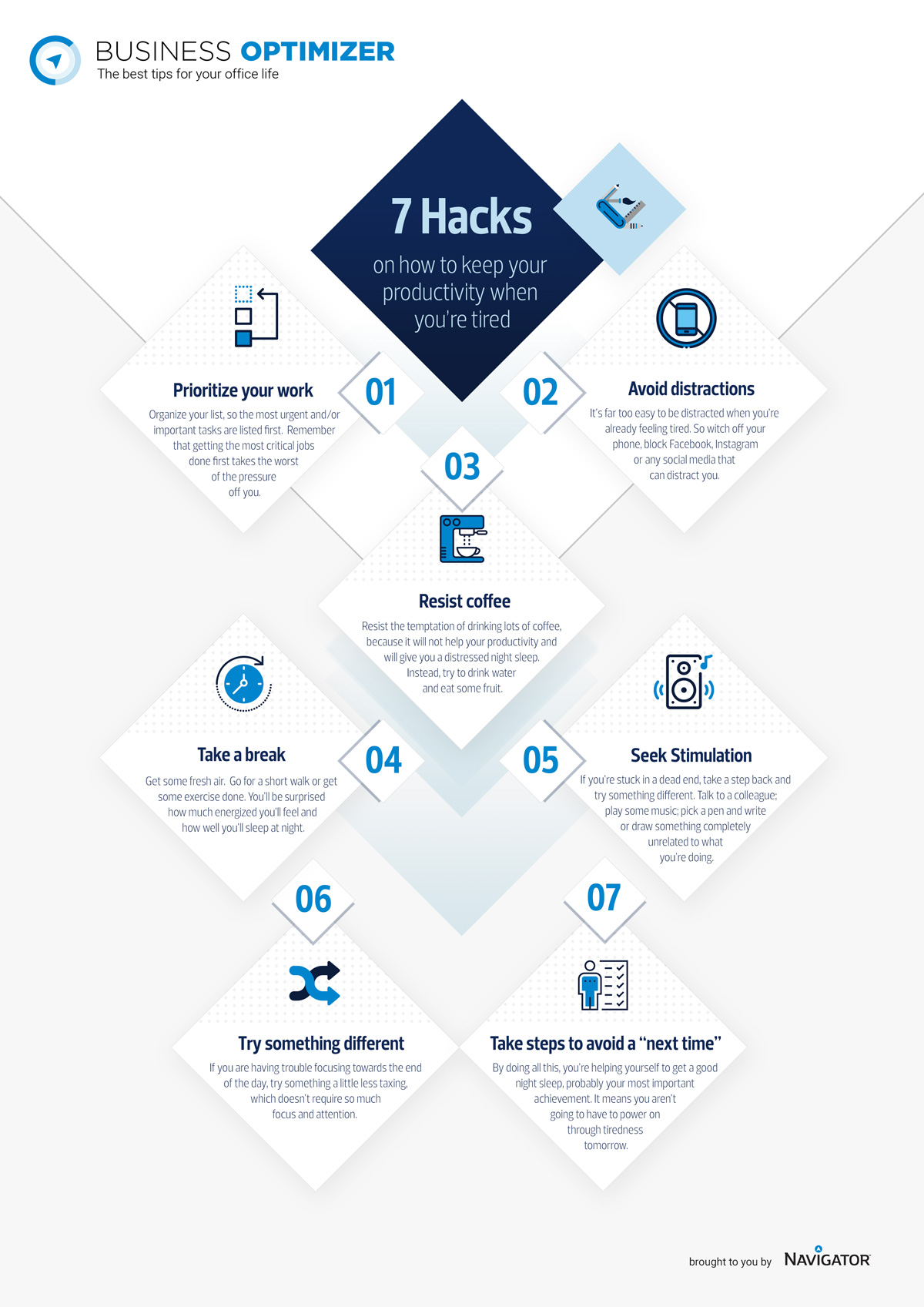1# Prioritize your work.
If you’re feeling overwhelmed, listing everything you need to get done can really help you focus.
Organize your list, so the most urgent and/or important tasks are listed first. This way, you can clearly see what you need to do.
If you can, start at the top of your job list and work methodically through it. Not only does crossing off the jobs one by one give you a sense of achievement, purpose, and help you focus, getting the most urgent jobs done first takes the worst of the pressure off you.
2. Avoid distractions
Switch off your phone – it’s far too easy to be distracted when you’re already feeling tired. Just remember to check your emails and messages every half-hour or so, so you don’t miss something important.
3. Look after yourself
It might be tempting to pour yourself another cup of coffee but, for most of us, caffeine doesn’t result in improved productivity – not least because it is going to disrupt your sleep later too. Dehydration makes you sluggish, so pour yourself a glass of water and try some fresh fruit instead.
4. Take a break
Get some fresh air. Go for a short walk and you’ll be surprised how revived you feel afterwards.
If you can, take some time out to get some exercise.
Not only will all those endorphins buzzing around your body give you more energy, it will help you sleep better later too.
If you can’t spare half an hour for a quick run, do some stretches by your desk, or some yoga breathing to help you focus.
Taking a break can be as simple as moving desks. Choose a new desk in natural light, if you can. Or, if you work from home, try moving to another room – a change of scenery might let you see the job in hand in a new light.
5. Seek stimulation
If you’re stuck in a rut, take a step back and try something different. Talk to a colleague, or a loved one. Play some music (not too disruptive!) in the background.
Try some aromatherapy; whether warming some stimulating oils like peppermint, rosemary, or citrus oils, or taking a quick stroll around the coffee shop downstairs. Pick up a pen and write or draw something completely unrelated to what you are doing. It doesn’t matter what you choose; you’ll be surprised how little it takes to get your thoughts and motivation flowing freely once more.
6. Try something different
If you are having trouble focusing towards the end of the day, try something a little less taxing, which doesn’t require so much focus and attention.
Even if it isn’t what you “should” be doing, getting something done can be better than staring blankly at an empty sheet of paper doing nothing.
Once you’ve ticked off a few menial tasks, you might be able to return to the original task with a renewed sense of purpose. Alternatively, try approaching the task from a different angle: go back and reread your notes, or talk to a team member about it.
7. Take steps to avoid a “next time”
Cutting back on the caffeine, completing all those urgent jobs, getting some exercise, and taking regular breaks don’t just help you in the short term, they’re helping you in the long term too; by helping you get a good night’s sleep.
This is probably your most important achievement; it means you aren’t going to have to power on through tiredness tomorrow.







